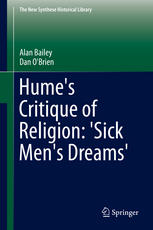

Most ebook files are in PDF format, so you can easily read them using various software such as Foxit Reader or directly on the Google Chrome browser.
Some ebook files are released by publishers in other formats such as .awz, .mobi, .epub, .fb2, etc. You may need to install specific software to read these formats on mobile/PC, such as Calibre.
Please read the tutorial at this link: https://ebookbell.com/faq
We offer FREE conversion to the popular formats you request; however, this may take some time. Therefore, right after payment, please email us, and we will try to provide the service as quickly as possible.
For some exceptional file formats or broken links (if any), please refrain from opening any disputes. Instead, email us first, and we will try to assist within a maximum of 6 hours.
EbookBell Team

0.0
0 reviewsIn this volume, authors Alan Bailey and Dan O’Brien examine the full import of David Hume’s arguments and the context of the society in which his work came to fruition. They analyze the nuanced natured of Hume's philosophical discourse and provide an informed look into his position on the possible content and rational justification of religious belief.
The authors first detail the pressures and forms of repression that confronted any 18th century thinker wishing to challenge publicly the truth of Christian theism. From there, they offer an overview of Hume's writings on religion, paying particular attention to the inter-relationships between the various works. They show that Hume's writings on religion are best seen as an artfully constructed web of irreligious argument that seeks to push forward a radical outlook, one that only emerges when the attention shifts from the individual sections of the web to its overall structure and context. Even though there is no explicit denial in any of Hume's published writings or private correspondence of the existence of God, the implications of his arguments often seem to point strongly towards atheism.
David Hume was one of the leading British critics of Christianity and all forms of religion at a time when public utterances or published writings denying the truth of Christianity were liable to legal prosecution. His philosophical and historical writings offer a sustained and remarkably open critique of religion that is unmatched by any previous author writing in English. Yet, despite Hume’s widespread reputation amongst his contemporaries for extreme irreligion, the subtle and measured manner in which he presents his position means that it remains far from clear how radical his views actually were.